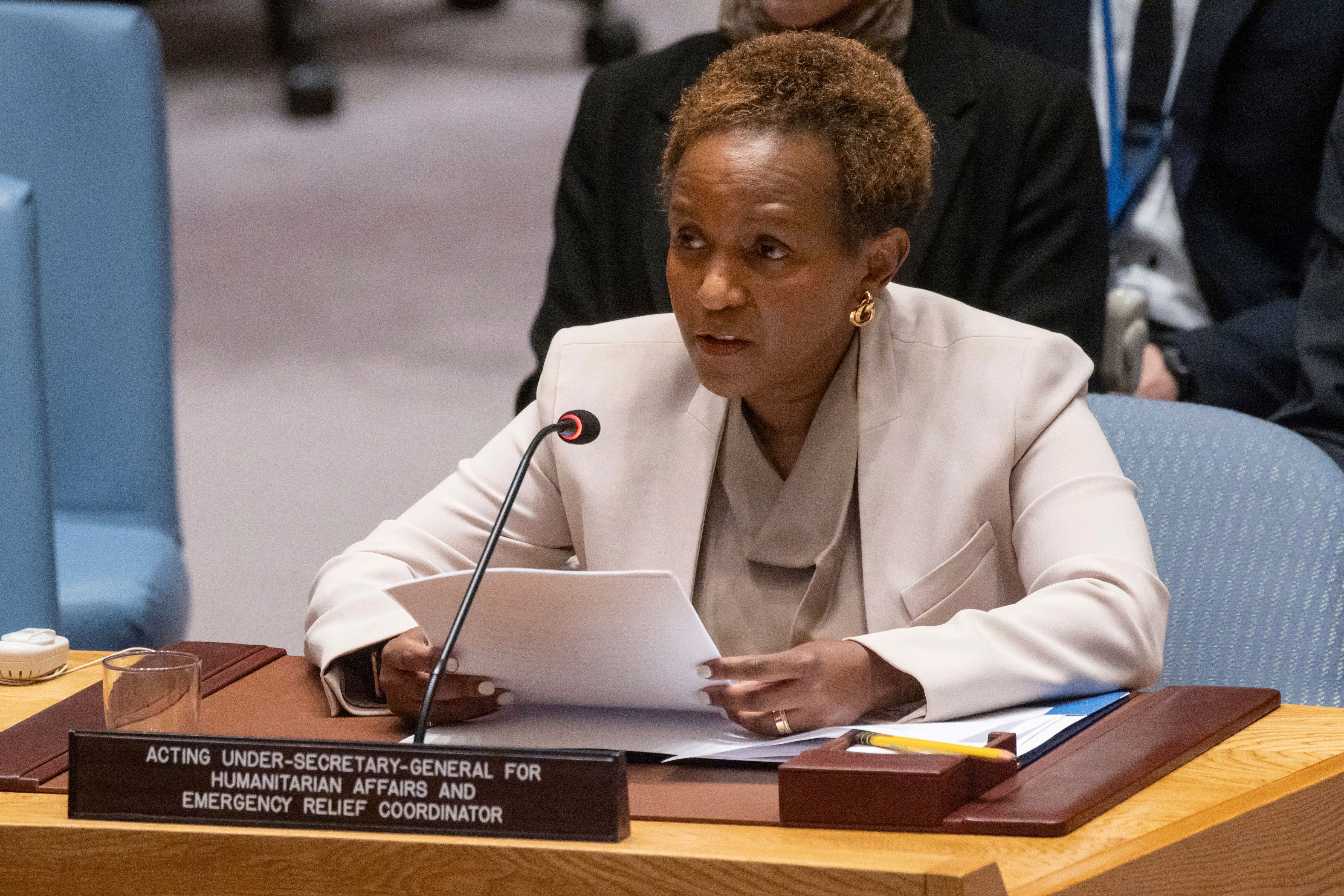UN is cutting back on Yemen activities after crackdown by Houthi rebels on humanitarian staff
The U.N. is cutting back its activities in Yemen in response to a crackdown by Houthi rebels on staff working for the U.N. and other organizations, the top U.N. aid official says

Your support helps us to tell the story
From reproductive rights to climate change to Big Tech, The Independent is on the ground when the story is developing. Whether it's investigating the financials of Elon Musk's pro-Trump PAC or producing our latest documentary, 'The A Word', which shines a light on the American women fighting for reproductive rights, we know how important it is to parse out the facts from the messaging.
At such a critical moment in US history, we need reporters on the ground. Your donation allows us to keep sending journalists to speak to both sides of the story.
The Independent is trusted by Americans across the entire political spectrum. And unlike many other quality news outlets, we choose not to lock Americans out of our reporting and analysis with paywalls. We believe quality journalism should be available to everyone, paid for by those who can afford it.
Your support makes all the difference.The United Nations is cutting back its activities in Yemen in response to a crackdown by Houthi rebels on staff working for the U.N. and other humanitarian, human rights, development and education organizations, the top U.N. aid official said Thursday.
Acting U.N. humanitarian chief Joyce Msuya told the U.N. Security Council that the United Nations has taken steps “to minimize the exposure of staff to risk in Houthi-controlled areas.”
The U.N. has narrowed its focus to “essential lifesaving and life-sustaining activities,” she said, and is deprioritizing broader activities to develop the Arab world’s poorest nation.
In June, the Houthis detained more than 60 people working with the U.N. and other organizations, according to the U.N. Human Rights Office. Days later, the Houthis said they had arrested members of what they called an “American-Israeli spy network.” The Houthis’ claims could not be independently verified.
Msuya said the U.N. strongly rejects “false allegations” by the Houthis against humanitarians, including recent claims of U.N. interference in Yemen’s education system.
“These allegations threaten the safety of staff, further hinder the ability of the U.N. and its partners to serve the Yemeni people and must cease immediately,” she said.
Msuya and U.N. special envoy Hans Grundberg reiterated Secretary-General António Guterres’ demand for the immediate release of all those detained including U.N. personnel, members of civil society, staff of diplomatic missions, private sector employees and individuals from minority religious communities.
Grundberg said it has been more than 100 days since the Houthis launched a wave of detentions “targeting Yemenis engaged in critical efforts related to humanitarian assistance.”
The Houthis have been engaged in a civil war with Yemen’s internationally recognized government, backed by a Saudi-led coalition, since 2014, when they took control of the capital Sanaa and most of the north.
The war in Yemen has killed more than 150,000 people, including fighters and civilians, and created one of the world’s worst humanitarian disasters.
The rebels have imprisoned thousands of people during the war. And in recent months they intensified their crackdown on dissent at home, including recently sentencing 44 people to death.
Msuya warned that the humanitarian situation in Yemen is “steadily deteriorating” with 62% of households surveyed reporting they don’t have enough to eat, saying this is a “historically high” number.
“For the first time on record, three districts – two in Hodeida and one in Taiz – are facing extremely critical levels of malnutrition – IPC Phase 5,” where there is famine, she said. “Four more districts are projected to reach this level by October.”
By the end of December, Msuya said, estimates project that over 600,000 children in government-controlled areas will be acutely malnourished and around 118,000 will suffer from severe acute malnutrition — a 34% increase since 2023.
“Time is of the essence if we are to prevent catastrophe,” she said, stressing that the U.N. humanitarian appeal for $2.7 billion for Yemen this year is only 28% funded.
Msuya also stressed that humanitarian workers need access. In the first seven months of the year, she said, direct interference by the parties in humanitarian activities accounted for 217 incidents – a significant increase from the 169 incidents reported for all of 2023.
“When the minimum requirements are met for the safety and security of United Nations personnel and other humanitarian workers, it is our sincere hope that we can once again expand programming,” Msuya said.